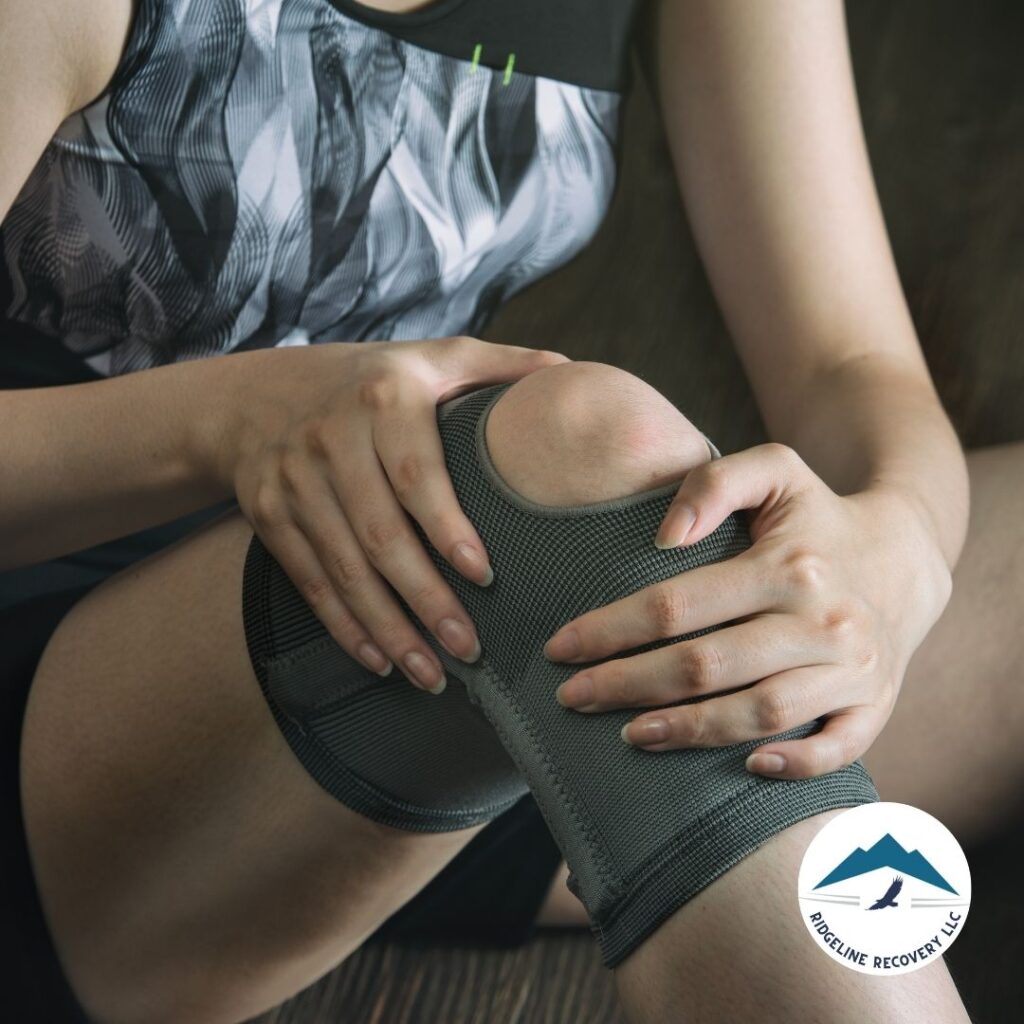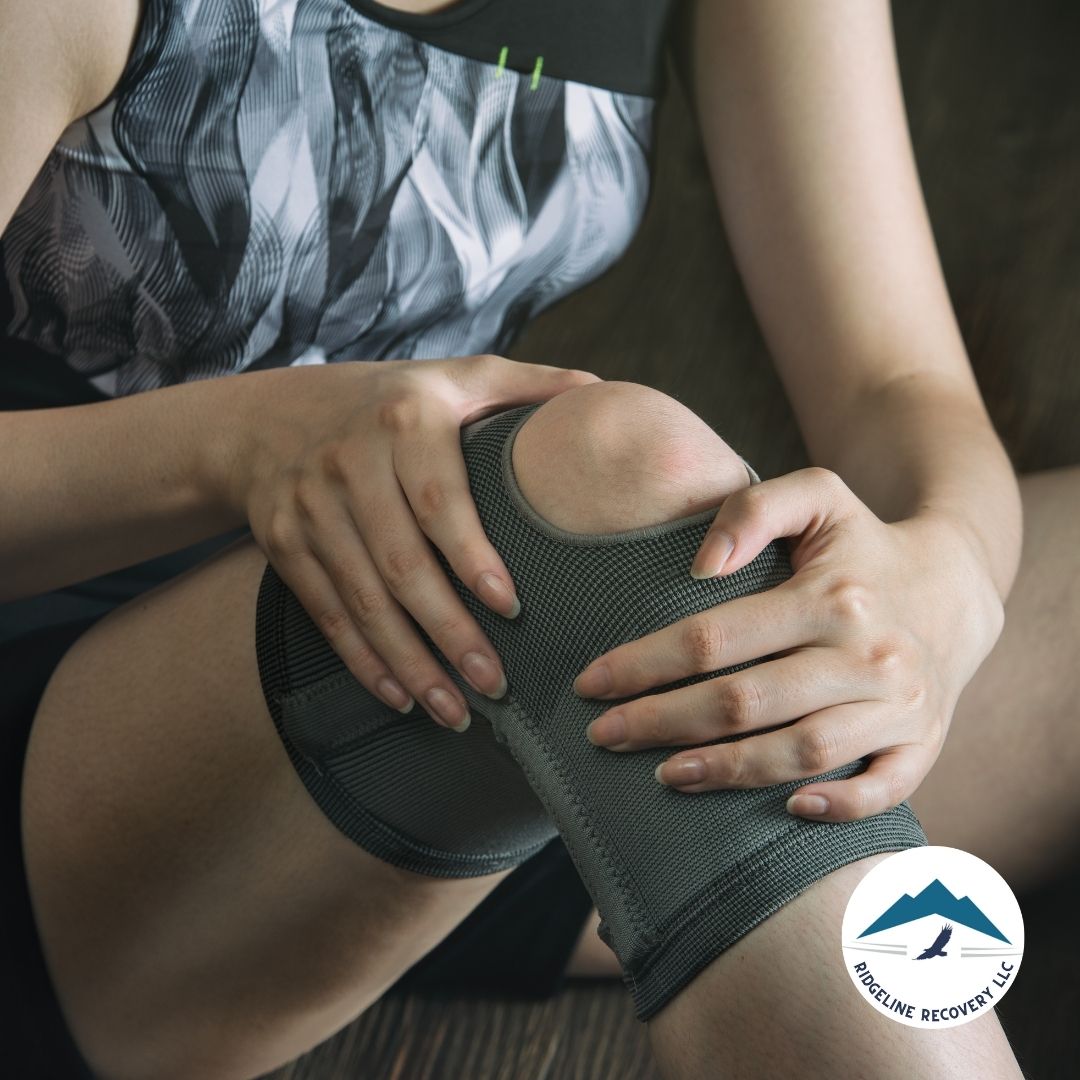If you’re reading this, you or someone you love is probably fighting a tough battle with addiction.
Look, there’s no one-size-fits-all answer to overcoming addiction. But if there’s one thing that moves the needle more than anything else, it’s addiction therapy. Not the quick-fix, band-aid stuff—real, evidence-based therapy that goes to the core of why people struggle with addiction in the first place.
Addiction therapy isn’t just about stopping use. It’s about building a foundation that keeps you free, sane, and thriving in a way that lasts.
Let’s break it down—why it matters, the types of therapy that work, and how to make it count long after the last session.
Understanding Why Addiction Therapy is the Foundation of Recovery
So, Why Therapy?
Here’s what most people don’t get: addiction isn’t just a bad habit. It’s not just a lack of willpower. It’s a mental health disorder. And like any health issue, it needs treatment, not just a quick fix.
Therapy provides tools to understand the root causes of addiction. It helps identify triggers, reshape thought patterns, and establish new habits.
But not all therapy is created equal.
This is where addiction therapy steps in. This isn’t about “trying harder”—it’s about rewiring your mindset and behaviors to face and conquer addiction.
The Types of Addiction Therapy That Work
Addiction therapy comes in many forms, each with its own approach. Here’s what we know works:
1. Cognitive Behavioral Therapy (CBT): The Gold Standard
CBT is one of the most common forms of addiction therapy because it targets the thoughts and behaviors behind the addiction.
It’s simple in concept: change how you think, and you change what you do.
How It Works
- Identifying Negative Thought Patterns: CBT helps you spot the thoughts that lead to addiction behaviors—like “I can’t handle stress without drinking” or “I’ll never beat this.”
- Building New Habits: Instead of reaching for a drink, you learn practical techniques for coping.
2. Motivational Interviewing: Building Intrinsic Motivation
Motivational interviewing is all about creating your own reasons to stay clean. It’s not about forcing change but helping you find the “why” that makes recovery worth it.
Here’s Why It’s Effective
- Reframes Your Motivation: You might feel resistance to quitting. Motivational interviewing gets you to see the bigger picture—the long-term goals, the life you want beyond addiction.
- Focuses on Personal Empowerment: When you’re ready to make a change, it doesn’t come from pressure. It comes from a real, personal decision.
3. Dialectical Behavior Therapy (DBT): Handling the Emotional Rollercoaster
Addiction recovery comes with emotional ups and downs. DBT is designed to help people regulate their emotions, particularly those who feel things intensely or have been through trauma.
Core DBT Skills
- Mindfulness: Staying present, instead of reaching for a substance when emotions run high.
- Emotional Regulation: Learning to handle intense feelings, like anger or sadness, without relapse.
4. Holistic Therapy Options: Treating the Whole Person
Traditional therapy covers the basics, but for many, the best addiction therapy goes deeper. Holistic therapy addresses not just the mind, but the body and spirit, too.
Some examples include:
- Art Therapy: Expressing emotions without words.
- Yoga and Meditation: Mind-body practices for staying grounded.
- Nutritional Therapy: Learning how diet impacts mood and physical health.
Recognizing the Power of Personalized Addiction Therapy
It’s easy to think that just one step, one decision, can fix addiction. But the reality is that recovery is about a lot more than a single action—it’s about retraining the mind. This is what Addiction Therapy does. It’s about rewiring thoughts, replacing old habits, and building new ones that don’t lead you back to substances.
Now, let’s talk about the game-changing aspects of Addiction Therapy and why personalized therapy is so powerful.
1. Customized Plans: The Missing Ingredient in Cookie-Cutter Programs
Everyone’s story with addiction is unique. This means everyone needs a plan that works specifically for them. A good therapy plan recognizes your individual experiences, triggers, and goals. At Ridgeline Recovery, for example, each client gets a personalized addiction therapy plan to build the confidence and skills needed for real recovery.
2. Addressing Mental Health Challenges Alongside Addiction
Here’s something critical: mental health and addiction are linked. So if you’re only treating addiction, it’s like treating just half the problem. Effective Addiction Therapy addresses both parts, using approaches like dual diagnosis treatment.
Some of the mental health services that add power to addiction therapy include:
- CBT for identifying negative thought patterns (a staple in mental health clinics and addiction recovery programs alike)
- DBT for managing intense emotions (particularly useful for people dealing with trauma or mood disorders)
- Support from mental health therapists who understand addiction and mental health conditions as co-existing challenges
The Role of Family and Support in Addiction Therapy
Let’s face it: addiction doesn’t just affect one person. It impacts everyone around you. Family support and a solid community are key ingredients in the recovery journey.
Building a Family Support System
Families can be a huge source of support in Addiction Therapy, but they need guidance, too. Therapy sessions that include family members help everyone involved understand the role they play in recovery. Family therapy sessions at addiction treatment centers like Ridgeline Recovery allow families to address past pain and rebuild trust. This is crucial because, without family support, individuals are often more vulnerable to relapse.
How to Maximize Addiction Therapy for Long-Term Success

Therapy is a tool, but like any tool, it works best when you know how to use it. Here’s how to get the most from your Addiction Therapy.
Setting Clear Recovery Goals
Recovery isn’t one-size-fits-all, and neither are your goals. Make a list of specific outcomes you want from therapy. Whether it’s controlling cravings, rebuilding relationships, or finding new hobbies, having goals helps give your therapy sessions direction.
Example Recovery Goals:
- Building New Coping Mechanisms: Learning how to handle stress or sadness without turning to substances.
- Creating a Relapse Prevention Plan: Working with a therapist to set up steps to avoid triggers.
- Building Healthy Routines: Adding structure and new activities to replace old habits.
Building a Strong Relationship with Your Therapist
Therapy works best when you trust your therapist. A strong relationship means you’ll be more open, which leads to deeper healing. Ridgeline Recovery therapists focus on building rapport with each client, creating a safe environment for clients to be real about their struggles.
Embracing Therapy as a Long-Term Process
Therapy isn’t a quick fix. Addiction Therapy needs time to make a lasting impact. But don’t see this as a downside. The reality is, each session helps strengthen your foundation, leading to healthier habits and a more stable life.
Overcoming Common Setbacks in Addiction Therapy
Recovery has its ups and downs. Understanding common setbacks can help you handle them when they arise.
The “Pink Cloud” Effect
After starting Addiction Therapy, many people experience a “pink cloud”—an initial high of feeling invincible and free from addiction. But this feeling doesn’t last forever, and it can lead to disappointment if not managed.
How to Deal with the Pink Cloud Effect
- Keep Expectations Realistic: Recovery is hard work. Accepting that helps you avoid the crash.
- Set Smaller Milestones: Celebrate progress, but remember there’s more work to do.
Handling Relapse: It’s a Bump, Not the End of the Road
Relapse happens to many people in recovery. The important thing is to see it as a setback, not a failure. Therapy provides tools for managing relapse, so you can get back on track without shame or guilt.
Steps to Handle a Relapse:
- Acknowledge the Relapse: Own it without blaming yourself.
- Reassess Triggers: Look at what caused the relapse so you can avoid it next time.
- Refocus on Therapy Goals: Use the relapse as a learning opportunity in your therapy sessions.
The Role of Alternative Therapies in Addiction Recovery
Alongside traditional therapy, alternative therapies play a powerful role in Addiction Therapy. Here’s a look at some of the most effective ones.
1. Mindfulness and Meditation
Mindfulness is all about being present, and it’s a game-changer for many people in recovery. Practices like yoga and meditation help reduce stress, one of the major triggers for addiction.
2. Adventure Therapy
For those looking for something beyond the therapy room, Adventure Therapy offers a hands-on approach to recovery. This kind of therapy uses physical activities like hiking, rafting, and rock climbing to teach resilience, teamwork, and self-confidence.
3. Nutritional Therapy
Addiction takes a toll on the body, and nutritional therapy is about healing that damage. A balanced diet helps stabilize mood and energy, reducing cravings and helping you feel stronger.
Building a Post-Therapy Support Network
Once you complete Addiction Therapy, the journey isn’t over. A solid support network helps keep you accountable and motivated.
Finding Support Groups in Columbus
From Alcoholics Anonymous to NA (Narcotics Anonymous), Columbus has a range of support groups that provide community and encouragement. These groups are often the lifeline people need after finishing therapy, giving them a place to share struggles, celebrate wins, and stay committed.
Staying Connected to Your Therapist
Many people choose to continue seeing their therapist after completing their program. Even if you’re feeling strong, regular check-ins can be a powerful way to stay on track.
How Ridgeline Recovery LLC Approaches Addiction Therapy
Ridgeline Recovery in Columbus goes beyond cookie-cutter approaches. Their philosophy is that every person deserves a customized treatment plan that respects their unique story.
A Look at Ridgeline Recovery’s Services
- Individual Therapy Sessions: Personalized one-on-one sessions that tackle your specific needs.
- Group Therapy: Building community and accountability with others on the same path.
- Family Therapy: Repairing relationships and creating a solid family support system.
Breaking Down the Stages of Addiction Therapy
When it comes to recovery, every journey is made up of stages, each with its own set of challenges and breakthroughs. Understanding these stages is key to seeing addiction therapy as a continuous process rather than a quick fix.
Stage 1: Acute Treatment and Detoxification
Before diving into therapy, many individuals go through detox—the process of clearing substances from the body. Detox is tough. But it’s necessary because it prepares you physically and mentally for addiction therapy.
Here are some of the best practices in detox that feed directly into a successful therapy experience:
- Medical Detox Supervision: Detox isn’t just about stopping substance use. Supervision in facilities like alcohol detox centers near me ensures a safe environment to manage withdrawal symptoms.
- Medication-Assisted Detox: Centers with access to Vivitrol clinics near me use non-addictive medications to manage cravings. This sets a firm foundation for therapy.
Stage 2: Foundational Therapy and Building a Recovery Framework
After detox, addiction therapy begins in earnest. In this phase, therapy is all about laying the groundwork for recovery. The focus here is on building a solid understanding of the “why” behind addiction and taking steps to rebuild a sense of self.
Key Tools in Foundational Therapy:
- Cognitive Behavioral Therapy (CBT): CBT addresses negative thought patterns. Many people have found that CBT empowers them to recognize and resist triggers.
- Dialectical Behavior Therapy (DBT): DBT is effective for managing intense emotions and improving interpersonal skills. It’s especially helpful for individuals dealing with co-occurring mental health challenges.
Stage 3: Advanced Therapy Techniques for Deeper Healing
This phase involves a shift toward deeper healing. Addiction therapy at this level focuses on confronting long-standing issues, which might include trauma, family dynamics, or even career setbacks.
Incorporating Alternative Therapy Options
For some people, traditional therapy methods alone aren’t enough. This is where alternative therapies come into play:
- Art and Music Therapy: Creative outlets like art and music therapy allow people to express feelings that are difficult to articulate in words.
- Adventure Therapy: Programs like substance use disorder providers adventure therapy utilize physical activities to build confidence and trust.
Moving Past Initial Therapy: Skills for Real Life
By now, clients often begin transitioning to skills-based therapy, which is all about practical application. Some of these skills include:
- Effective Communication: Being open and honest with loved ones and building healthy relationships
- Managing Emotions: Recognizing and handling feelings without turning to substances
The Psychology Behind Relapse Prevention
One of the most critical aspects of addiction therapy is understanding and preventing relapse. The statistics can be daunting, but therapy provides an arsenal of tools to manage and avoid relapse.
Recognizing Personal Triggers
A trigger is anything that makes you think about using again. They could be people, places, or even certain feelings. Therapy helps people identify these triggers and create a personalized action plan.
Some common triggers might include:
- Social Settings: Being around people or places that encourage drinking or substance use
- Emotional Stress: Stressful or overwhelming situations, like job pressures or family disputes
- Loneliness: Feeling isolated or disconnected can push some people back toward addiction
Developing a Trigger-Response Plan
Your therapist will help you develop a trigger-response plan. Here’s what it might look like:
- Identify: Recognize when a situation could be a trigger.
- Implement: Apply strategies such as deep breathing, grounding exercises, or reaching out to a support network.
- Evaluate: After the situation, assess what worked and adjust as needed.
This isn’t a one-time task. Effective Addiction Therapy involves revisiting and tweaking this plan as you grow stronger in your recovery.
Exploring Holistic and Supportive Therapy Approaches

Beyond the basics of therapy, holistic approaches add value by targeting the mind, body, and spirit in recovery. This approach is particularly valuable because it doesn’t just treat addiction; it treats the person as a whole.
1. Nutrition and Physical Health
Substance abuse often leads to nutritional deficiencies. Part of holistic therapy is about rebuilding physical health through proper nutrition and regular physical activity. Eating well is essential for mental health, too, because balanced blood sugar and nutrient-rich foods support mood stability.
2. Meditation and Mindfulness
Meditation can be particularly useful in addiction therapy because it trains the mind to recognize cravings without acting on them. Here’s how it works:
- Increased Awareness: Recognizing cravings as they come up.
- Emotional Regulation: Practicing acceptance instead of reacting.
At Ridgeline Recovery, for example, clients participate in structured mindfulness sessions to create space between impulse and action.
3. Chiropractic and Acupuncture
Holistic therapies, including acupuncture and chiropractic care, have shown benefits in addiction recovery. While they don’t replace traditional therapy, they can alleviate pain, boost relaxation, and promote overall well-being, making it easier for clients to focus on recovery.
Community Building and Its Role in Addiction Therapy
A supportive community is one of the best assets you can have during and after addiction therapy. For many, finding a recovery community is as critical as the therapy itself.
Finding Community in Group Therapy
Group therapy isn’t just about sharing stories; it’s about learning from each other. Individuals gain insights from others’ experiences, build friendships, and offer support, which is key to overcoming the isolation many people in recovery feel.
Joining Local Support Groups
Support groups offer ongoing community support and accountability. There are plenty of support options in Columbus, from Alcoholics Anonymous (AA) to Narcotics Anonymous (NA). For people leaving Ridgeline Recovery, these groups provide ongoing guidance.
FAQs on Addiction Therapy
Q1: How do I know which therapy is right for me?
A: Your treatment provider will help you choose based on your needs. At Ridgeline Recovery LLC in Columbus, we combine different approaches to create a personalized plan. There’s no one-size-fits-all therapy, but there is a right combination.
Q2: Is addiction therapy near me effective for everyone?
A: Yes, if done with the right approach. But it’s important to be ready to invest in the process. Therapy can be uncomfortable, but that’s where real change happens.
Q3: What’s the difference between inpatient and outpatient therapy?
A: Inpatient therapy involves staying at a facility, often providing more structure. Outpatient therapy allows you to attend sessions while living at home, which might be more convenient for some.
Q4: How do I know if I need addiction therapy?
If addiction is affecting your relationships, work, or health, therapy can help. Therapy isn’t just for people hitting rock bottom—it’s for anyone who wants to regain control over their life.
Q5: What’s the best approach for addiction therapy?
The best approach is one that’s tailored to you. CBT, DBT, and holistic therapies are all effective depending on individual needs.
Q6: Is relapse a failure?
No. Relapse is a part of recovery for many. It’s an opportunity to learn and grow, not a reason to give up.
Q7: Does Ridgeline Recovery accept insurance?
Yes, Ridgeline Recovery accepts most major insurance providers. They work with clients to make treatment as accessible as possible.
Your Next Steps in Addiction Recovery
Addiction Therapy is more than just a treatment. It’s a roadmap for taking back control of your life.
If you’re ready to get started, or if you have more questions, reach out to Ridgeline Recovery LLC in Columbus. Their team is there to walk you through each step of the process, helping you reclaim your life.
Whether you’re dealing with drug addiction, alcohol dependency, or mental health challenges, therapy can make the difference. It’s time to take the next step—because recovery starts with the decision to act.
Conclusion: Therapy is More than a Treatment—It’s Your Lifeline to Lasting Recovery
The path to recovery isn’t easy, but it’s worth it. Therapy offers a roadmap to reclaim control over your life, rebuild relationships, and rediscover your potential. For those struggling with addiction, addiction therapy isn’t just a treatment; it’s the bridge between you and a healthy, fulfilled life.
When you’re ready to take the next step, Ridgeline Recovery in Columbus is here to support you. Their team offers a range of services tailored to your unique needs, making sure that you’re equipped for success. Whether you’re reaching out for the first time or returning after a setback, therapy is always there to guide you forward.
This journey is one you don’t have to face alone. With the right tools, support, and mindset, lasting recovery is entirely within reach.
Call Us Now!
If you or a loved one is struggling with heroin or alcohol dependency, reach out to Ridgeline Recovery Center in Columbus, Ohio, today. At Ridgeline Recovery, we offer a path to hope and healing. Our comprehensive Addiction Recovery services include Addiction Therapy, Addiction Treatment, Vivitrol Clinic and specialized Mental Health Services designed to support your journey to recovery.
We provide Aftercare Programs and Peer Support to ensure you have ongoing assistance after treatment. Our dedicated team offers Case Management and Child Services for those needing extra support. For individuals who prefer a faith-based approach, we offer Faith-Based Recovery options.
Our programs feature Group and Individual Counseling, along with Medication-Assisted Treatment (MAT) to address your unique needs. We also have an Intensive Outpatient Program (IOP) and a Partial Hospitalization Program (PHP) for more structured care.
Our team includes Registered Nurse Services, Psychiatric Services, and Therapeutic Behavioral Services (TBS) to provide comprehensive support throughout your recovery process. We work with various Insurance Coverage plans to help you access the care you need.
Don’t wait—contact us now to start your journey toward a brighter future with Ridgeline Recovery.
For more stories and information Contact Us, visit our Blog page and Stories & Highlights.







